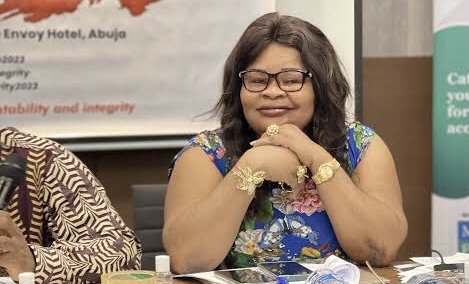From Idu Jude Abuja
The Initiative for Research, Innovation, and Advocacy in Development (IRIAD) and The Electoral Hub have tasked the Federal Government of Nigeria to increase funding and domesticate state edicts to help fight the scourge across states of the nation.
Director of the group, Princess Hamman-Obels, in a press statement to commemorate the 2024 edition of the World event, posited that this year’s activism is “Towards Beijing +30: Unite to End Violence Against Women and Girls.”.
“Let us embrace this call to action by “oranging” our minds, homes, workplaces, and communities, not only as a statement of solidarity but also as a commitment to fostering safe environments for women and girls everywhere. We can collectively create a world where women and girls feel secure and valued.”
According to Princess Hamman-Obels, the campaign runs from the 25th of November 2024, the International Day for the Elimination of Violence Against Women, through the 10th of December 2024, which is Human Rights Day.
Furthermore, she said that the day remains a crucial opportunity to advocate for an end to violence against women and girls.
She said the 16 Days of Activism raises awareness about the pervasive issue of gender-based violence and advocates for its eradication, emphasising the critical need for collective action and sustained commitment to protect the rights of women and girls.
Meanwhile, the director of the group has emphasised that in Nigeria, GBV remains a pressing challenge exacerbated by socio-economic factors, cultural norms, and ongoing conflicts and insecurity across the nation.
She added that over 27,000 reported cases of violence against women and girls (VAWG) between 2020 and 2024 highlight the urgent need for sustained advocacy and intervention to end this scourge against women and girls. For instance, the Salama Sexual Assault Referral Centre in Kaduna State reported nearly 3,977 cases of sexual and gender-based violence since its inception in 2019, while Lagos State documented over 24,009 cases across all local government areas between January 2019 and December 2023.
“While there is progress in legislative efforts such as the Violence Against Persons Prohibition (VAPP) Act enacted in 2015, with all states in Nigeria domesticating this law or having a similar law (e.g., Lagos and Ekiti States) as of 2024. The gap between policy and practice reveals the need for effective implementation and enforcement mechanisms. Additionally, traditional beliefs and stigmas surrounding victims often deter individuals from seeking help or reporting incidents. Cases of femicide have drawn national attention, emphasising the urgent need for legal reforms and stronger protective measures for women.
“Issues such as terrorism, banditry, and farmer/herder crises in North West and Central Nigeria have also exacerbated GBV issues, with many women subjected to sexual violence by armed groups.
Consequently, initiatives aimed at addressing GBV reflect a growing recognition of this issue; however, these efforts must translate into tangible support systems for survivors.
“As we observe this year’s 16 Days of Activism, we urge all relevant stakeholders to take decisive action as follows:
The government must take the lead in enforcing existing laws, such as the VAPP Act, across all states. It must ensure legal frameworks are robust enough to protect survivors while holding perpetrators accountable. Increased funding for GBV prevention programs is essential to create safe spaces for victims and provide necessary resources for support services.
“Civil society organisations play a crucial role in combating GBV through advocacy and community engagement. CSOs should collaborate with local communities to raise awareness about GBV and offer comprehensive support services for survivors. Implementing educational programs that challenge harmful cultural norms and promote gender equity is vital to fostering long-term change. Also, community leaders, including traditional rulers and religious figures, are essential in shaping societal attitudes towards GBV.
We encourage them to engage actively within their communities to advocate against GBV and promote healthy relationships based on mutual respect. The influence of leaders is vital in changing perceptions and behaviours that perpetuate violence against women.
The group further recommended that educational institutions must incorporate comprehensive education on gender equity and human rights into their curricula. By instilling values of respect and equity from a young age, schools can play a significant role in preventing future incidents of GBV. Programs that empower students with knowledge about their rights will foster a culture of respect and accountability.
The media outlets have a responsibility to highlight stories of survivors rather than sensationalising cases of violence. By using their platforms to educate the public about the realities of GBV, the media can promote campaigns that encourage reporting and support for victims.
